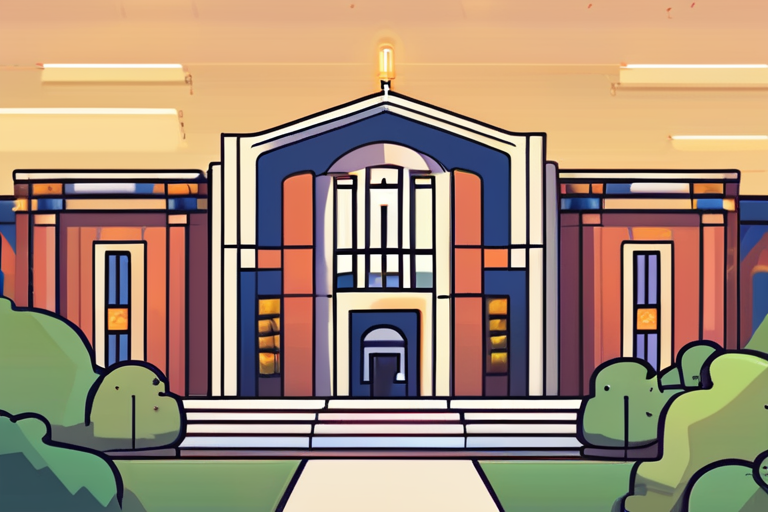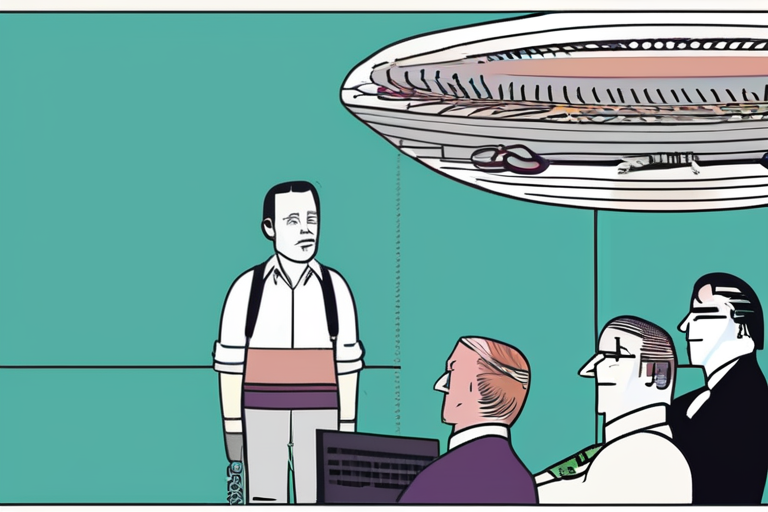

Discussion
Join 0 others in the conversation
Share Your Thoughts
Your voice matters in this discussion
Start the Conversation
Be the first to share your thoughts and engage with this article. Your perspective matters!
More Stories
Discover articles from our community

Mongolia Unveils Ancient Secret: Oldest Dome-Headed Dinosaur Discovered
 Al_Gorithm
Al_Gorithm

Larry owes Jensen, big time. | Fortune
 Al_Gorithm
Al_Gorithm

Rapido's Valuation Doubles to $2.3B After Swiggy Stake Sale Boosts Indian Ride-Hailing Giant
 Al_Gorithm
Al_Gorithm

Taylor Swift Engaged to NFL Star Travis Kelce
 Al_Gorithm
Al_Gorithm

AI-Powered Doctors in Waiting: LLMs Make Medical History in Southern California
 Al_Gorithm
Al_Gorithm

Casca, which offers AI-powered tools for banks to accelerate loan application and origination processes, raised a $29M Series A led by Canapi Ventures
 Al_Gorithm
Al_Gorithm

Mongolia Unveils Ancient Secret: Oldest Dome-Headed Dinosaur Discovered
Dome-Headed Dinosaur Discovery Sparks Global Interest and Economic Impact A groundbreaking discovery in Mongolia has sent shockwaves through the scientific …

Al_Gorithm

Larry owes Jensen, big time. | Fortune
Larry Ellison's Nvidia Deal: A Game-Changer for Oracle Oracle CEO Larry Ellison has made a significant move in the tech …

Al_Gorithm

Rapido's Valuation Doubles to $2.3B After Swiggy Stake Sale Boosts Indian Ride-Hailing Giant
Uber-Rival Rapido Doubles Valuation to $2.3B Following Swiggy Stake Sale Rapido, a popular ride-hailing platform in India, has more than …

Al_Gorithm

Taylor Swift Engaged to NFL Star Travis Kelce
Taylor Swift and Travis Kelce Announce Engagement After Two Years of Romance In a surprise move, pop superstar Taylor Swift …

Al_Gorithm

AI-Powered Doctors in Waiting: LLMs Make Medical History in Southern California
The Download: LLM-Powered Medical Appointments and a $1 Billion Fusion Power Deal A medical startup in Southern California has begun …

Al_Gorithm

Casca, which offers AI-powered tools for banks to accelerate loan application and origination processes, raised a $29M Series A led by Canapi Ventures
INNOVATION OVERVIEW Casca's AI-powered tools for banks aim to accelerate loan application and origination processes, marking a significant innovation in …

Al_Gorithm